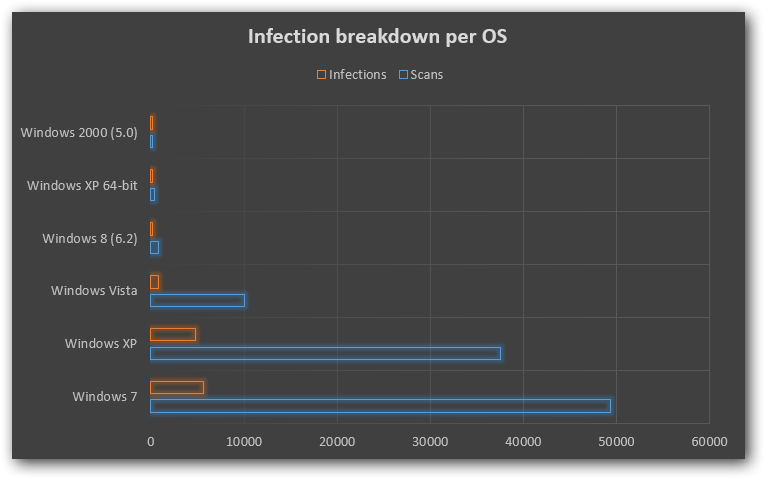Double-Check Before you Leap: 11.6 Percent of PCs with Security Solution Infected

When it comes to security tips, nothing beats the good old advice to install and update an antivirus solution with state-of the art detection proven in independent performance tests. A security solution should offer full protection against malware, but this is not the case in real life. That`s why a second opinion from a different security solution could save you a lot of trouble, especially before sensitive operations such as e-banking or online purchases.
Three years ago, Bitdefender launched QuickScan, an antivirus scanner that runs directly in the browser and scans critical areas of the system for active instances of malware. By design, QuickScan works straight from the browser, along with any other security solution you may have on your machine, and it requires no administrative privileges.
The information provided by QuickScan reveals that more than one in 10 scanned computers that are running a security solution have been found infected with one or more families of malware while their users are perfectly sure they are fully protected.
The test, carried between February and May 2013, shows that, on average, 11.6 percent of the computers scanned with either Bitdefender QuickScan or its desktop-based variant (the 60-Second Virus Scanner) are actively infected with at least one piece of malware. The study also shows the infected computers run a variety of operating systems, ranging from unsupported versions of Windows (such as Windows 2000, which reached its end of life in July 2010) to Microsoft`s latest operating system (Windows 8). The number of infections identified per platform is proportional to the market penetration of each version of Windows.
Retired and unsupported versions of Windows
During the same period, QuickScan telemetry shows that roughly 9.28 percent of the scanned systems running Windows 2000 are infected. The Microsoft operating system that will be retired next April ” Windows XP ” is still being massively used and has a scan-to-infection rate of 12.87 percent.
Of the newest operating systems from Microsoft, 11.47 percent of the scanned machines running both Windows 7 and another security solution were found to be infected. In contrast, only 4.59 percent of the new Windows 8 machines scanned with QuickScan were infected.
According to OPSWAT, Windows 7 leads the pack in the operating system market (53.8% of all Windows versions), followed by Windows XP (36.2%) and Windows Vista (8.1%).
Geographic Distribution
QuickScan intelligence revealed that the largest numbers of infected computers are in India (infection rate: 14.48%), Romania (11.55%), the United States (5.43%), and France (7.47%). These stats only reflect infections for computers already running a security solution ” either free or paid.
Conclusion
Widespread access to the Internet and increased interaction over the web have had a dramatic impact on malware production. In less than 10 years, malware has grown from scattered samples to more than 145 million known threats at a growth rate of roughly 40,000 samples per day. This puts enormous stress on an antivirus product and increases the chance of infection, especially when your local antivirus is not regularly updated or your operating system is not fully patched against zero-day exploits. Unlike advanced persistent threats, most malware is used for crimes of opportunity ” cyber-crooks plant malware in advance and lurk on the system until they have the opportunity to monetize the intrusion ” i.e. when the user performs a banking transaction. This is why a second opinion from an online virus scanner could help you spot an incident before it turns into a disaster for your financials or personal life.
tags
Author

Bogdan is living his second childhood at Bitdefender as director of threat research.
View all postsRight now Top posts
Start Cyber Resilience and Don’t Be an April Fool This Spring and Beyond
April 01, 2024
Spam trends of the week: Cybercrooks phish for QuickBooks, American Express and banking accounts
November 28, 2023
FOLLOW US ON SOCIAL MEDIA
You might also like
Bookmarks











